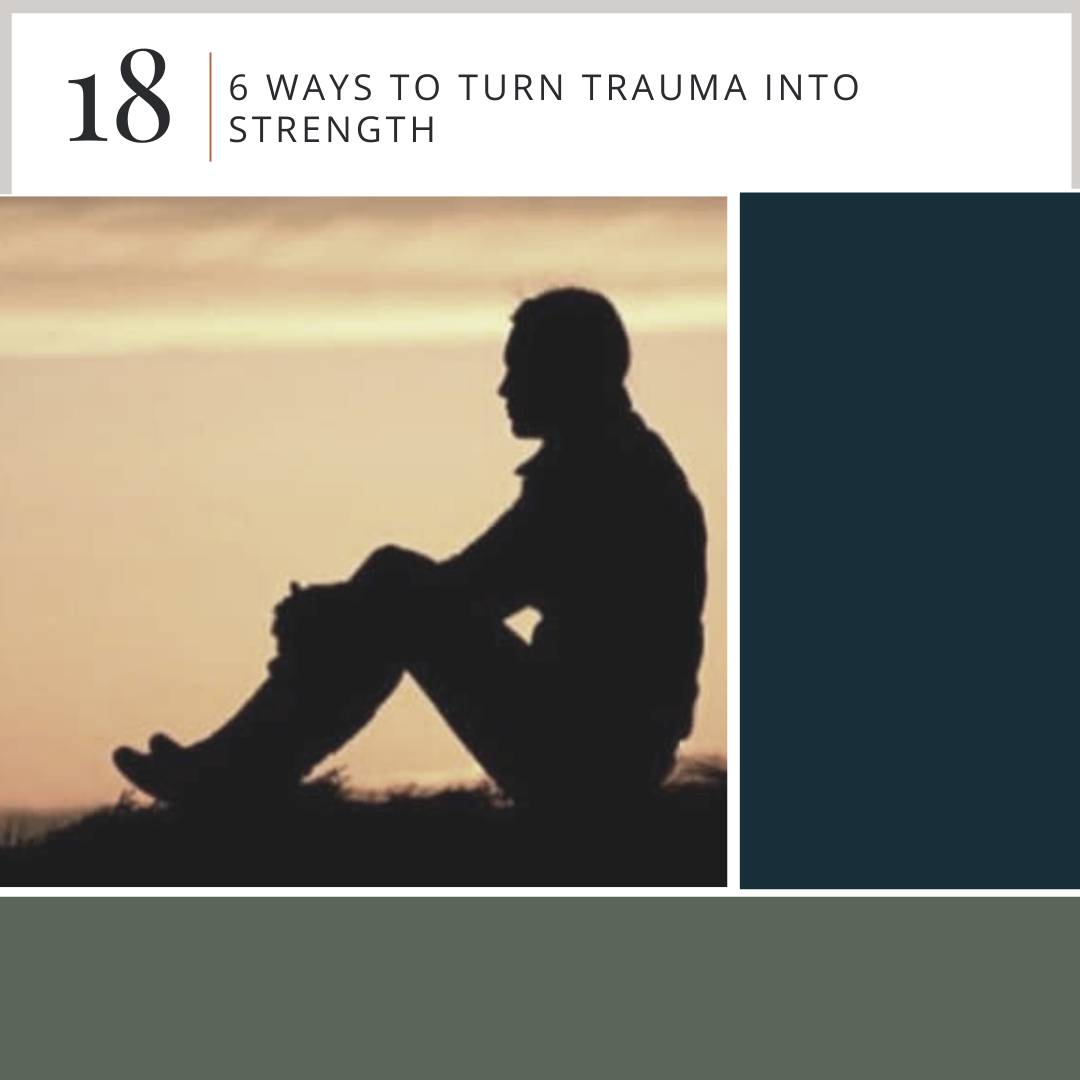6 Ways To Turn Trauma Into Strength
6 Ways To Turn Trauma Into Strength
90% of us will suffer from some form of trauma in our lives. That said, I acknowledge that some people’s trauma is far worse than others. A traumatic experience isn’t the end of the road though. We can get through it and can come out the other side a stronger and more purpose driven person than we ever were before.
“Post-traumatic growth,” a term coined by University of North Carolina psychologists Richard Tedeschi and Lawrence Calhoun, describes the surprising benefits many survivors discover in the process of healing from a traumatic event.
After many years of counselling survivors, researchers found growth in five main areas: Personal strength, deeper relationships with others, new perspectives on life, appreciation of life, and spirituality.
Here are 6 strategies Trauma Psychologists have used to turn trauma into strength:
Mindfullness
Harvard neurobiologist Sara Lazar has shown that “meditation can literally change your brain.” It can actually shrink the amygdala, the ‘fear center’ in our brain that might be enlarged after a trauma and trigger flashbacks of anxiety and panic.
Vulnerability
Growth arises from acknowledging the wounds and allowing vulnerability. A significant part of recovery involves teaching survivors to communicate openly, admit fears, and reach out to seek help.
Self Compassion
Teaching survivors to practice self compassion and loving kindness allows them to reconnect with the wounded parts of themselves.
“90% of us will suffer from some sort of trauma in our lives”
Finding Meaning
Tedeschi says that “After trauma, it’s important to acknowledge mental suffering will happen,” “At a certain point, and in tandem with continuing distress, a crucial foundation of post-traumatic growth is making meaning out of and reflecting about one’s trauma.”
Auschwitz survivor and author of Man’s Search for Meaning, Viktor Frankl realized, “Those who have a ‘why’ to live can bear with almost any ‘how.’”
Gratitude
According to studies at the University of California, grateful people not only report that they are more satisfied, optimistic, and content with their lives, but they also have fewer medical symptoms, more energy, and even sleep better. In teaching resilience the US army calls it ‘Hunt for the Good Stuff”.
A Team Effort
“Nobody ever does it alone,” civil rights icon Maya Angelou recognized, years after being raped at the age of 8. Moving forward after a crisis depends not only on the individual’s resources and their genetic makeup or upbringing, but also on their connections to the people around them and the quality of support.
As Jim Rendon, author of Upside: The New Science of Post Traumatic Growth says: Growth begins with healing from trauma—it is not a free pass to avoid suffering. But, as researchers now know, people have the capacity to do far more than just heal. Given the right environment and mindset, they can change, using the trauma, the suffering and struggle that ensues, as an opportunity to reflect, to search for meaning in their lives, to ultimately become better versions of themselves.
FEATURE RECAP:
Post-traumatic growth - describes the surprising benefits many survivors discover in the process of healing from a traumatic event.
People have the capacity to do far more than just heal

